Fall 2023 Spotlight on the Wadsworth Institutional Grant Program
Breno Botelho Ribeiro
Catholic environmental activism in a critical event: Brumadinho, Minas Gerais, Brazil
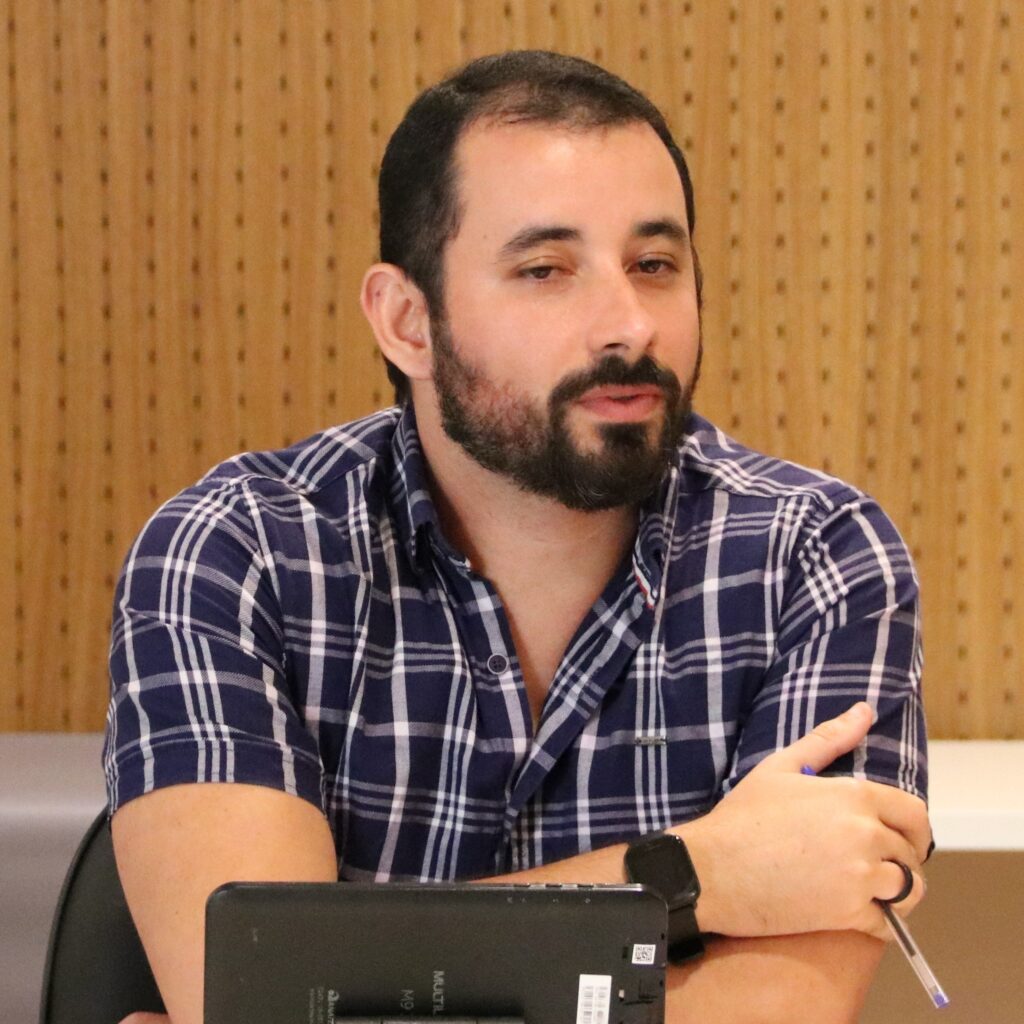
The aim of this research is to investigate the relationship between critical events and the emergence and development of political-religious groups and practices linked to Catholic environmental activism. I will monitor, map and seek to understand the dynamic relations among territories, groups, subjects, practices, and doctrines involved in the Catholic environmental activism of the Episcopal Region of Nossa Senhora do Rosário (RENSER). RENSER was established in 2019 following the failure of the Córrego do Feijão Tailings Dam, owned by the mining company Vale S.A. in Brumadinho, Minas Gerais.
The founding principle of RENSER’s socio-pastoral activities is the notion of “integral ecology,” as presented in Pope Francis’s 2015 encyclical Laudato Si’. Since its creation, RENSER has promoted a set of projects to support those affected by the dam failure and established the Laudato Si’ Sowers, along with a sanctuary and an annual Pilgrimage to Brumadinho in Defense of Integral Ecology.
Why did the Catholic Church create these structures and adopt these practices after the dam failure? How do they affect disputes over the memory of this critical event? How does the relationship between the new Catholic ecotheology expressed in Laudato Si’, with its call for an “ontological diplomacy”, and the socio-environmental conflicts present in this territory, marked by intense extractive production, work in practice?
Genilson Leite Da Silva
Old devil, I’m going to cut off your horn, your tail and give it to Exu to eat: an ethnography of Exu’s giras in Rio de Janeiro’s public spaces
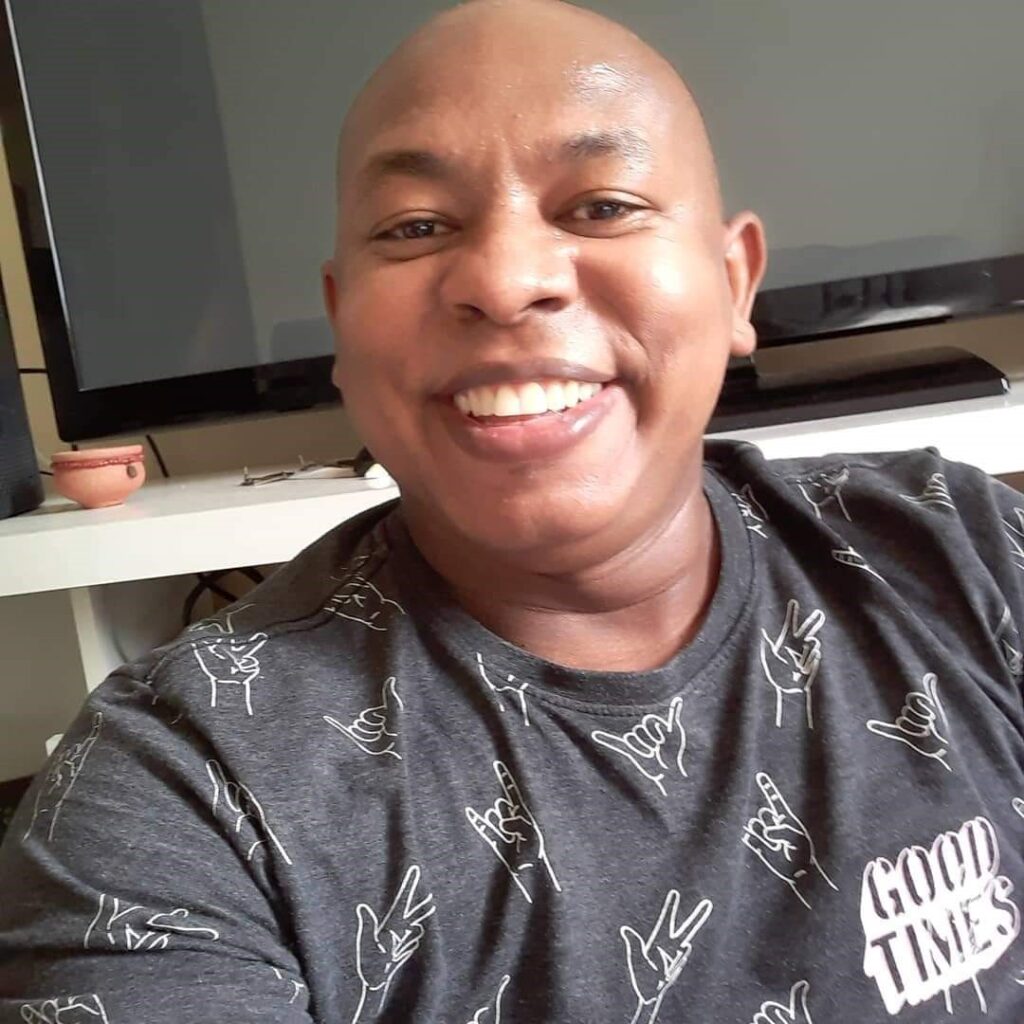
What articulations and negotiations must there be between the state and the organizers of the Exu Giras to enable such events to take place in public spaces and to allow them to expand throughout the state? This research focuses on the occupation of public spaces in Rio de Janeiro by Giras de Exu in order to understand the developments, ruptures, and continuities that this phenomenon has generated. I seek to understand the social dynamics that make giras in public spaces possible in a systematic and organized way. I will conduct fieldwork in Zé Pilintra sanctuary, Lapa neighborhood, a central site in the consolidation and expansion of the phenomenon. I situate the research at the intersection of urban anthropology and the anthropology of religion, to understand the configurations and challenges modern cities pose to Afro-Brazilian religions. I will draw on the anthropology of ritual to account for the symbolic codes and signs at work in cultural practices and to analyze performances. Through my ethnography, I will document the existence of the Giras circuit and analyze the convergence of spiritual practices, cultural symbols, urban spaces, and socio-political dynamics that have created a network of relationships that produce discourses and narratives of dispute and conflict around the sanctuary.
Julia Escobar Chaise
Between here and there: producing Iranicities in transnational diasporic contexts
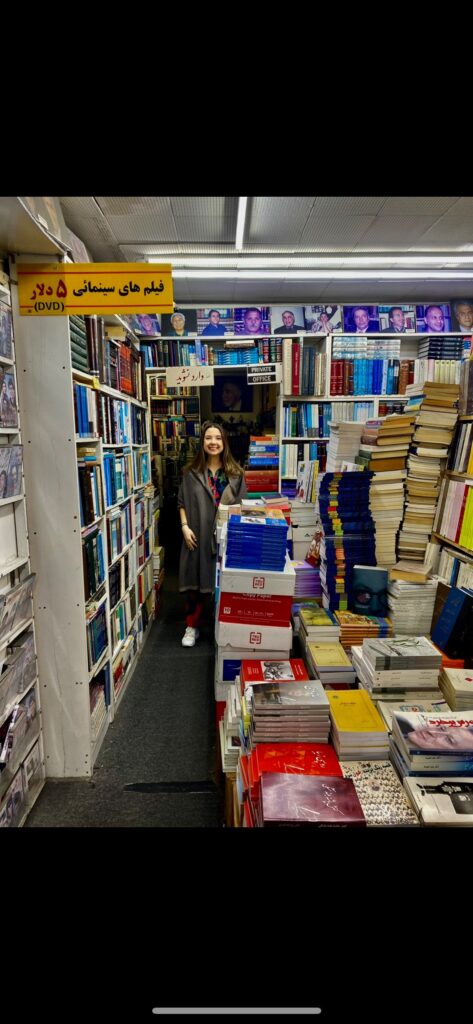
Through multi-sited fieldwork, this research aims to understand how Iranian diasporic populations living in two large metropolises, New York and São Paulo, construct Iranicity in their countries of destination. It addresses these populations’ relationship to Iran and political events there that, whether consciously or unconsciously, affect their lives outside their country of origin, even if, for some generations, this link is only affective rather than geographical. The Women, Life, Freedom Movement, which came to prominence in September 2022 after the Iranian regime brutally executed a 22-year-old Kurdish woman, Mahsa Amini, for wearing the hijab inappropriately, provides me with a starting point for investigating the mobilization of transnational diasporic networks in the two cities in question. In New York, all demonstrations were in favor of the fall of the Islamic Republic, even though there is no consolidated future project for the country. In São Paulo, the dynamics of belonging crosscut other categories, such as religion, which suggests that an anti-regime position is not a fundamental element in the construction of an ideal or common Iranicity. The research focuses on both divergences and similarities in what it is to be Iranian at the center and on the margins of the diaspora, showing how political events that spread transnationally affect the lives of individuals who have left Iran behind, either permanently or temporarily.
Lucas Rocha Salgado
Peasant ways of life and the contemporary transformations of São Paulo’s rural neighborhoods
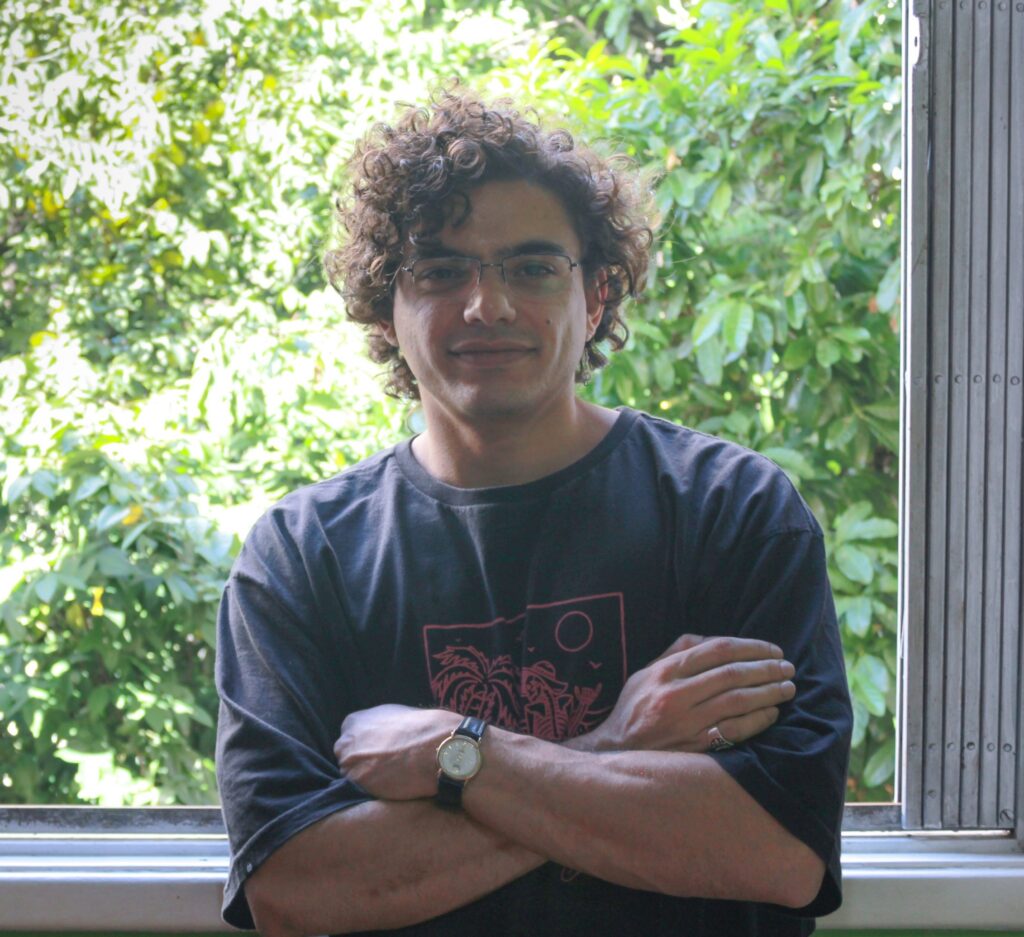
This ethnography focuses on the social and ecological transformation of rural neighborhoods in São Paulo. These communities, which are relatively close to the metropolitan region, have felt the impact of pressure on real estate, proximity to the precarious industrial labor market, the intensification of horticultural enterprises, and the arrival of proponents of something like a new ecological communitarianism in the countryside. At the time when São Paulo was known for its coffee plantations, relations with the land were made invisible and the countryside took on the shape it has today. My research investigates ways of life in the countryside amid agribusiness, monoculture, urbanization, and industrialization. My fieldwork will take place in two rural centers in the east of the state of São Paulo: Aparecidinha neighborhood, in Pinhalzinho, and the Fukushima neighborhood, in Guararema. I will carry out a controlled comparison of various aspects of these contexts in order to illuminate similarities and differences, transformations and persistences, in rural lifestyles in the hinterlands of São Paulo today.
Rogério Louvain Viana Filho
Plantation, oil and infrastructure in Guyana: researching diffuse borders in the Plantationocene
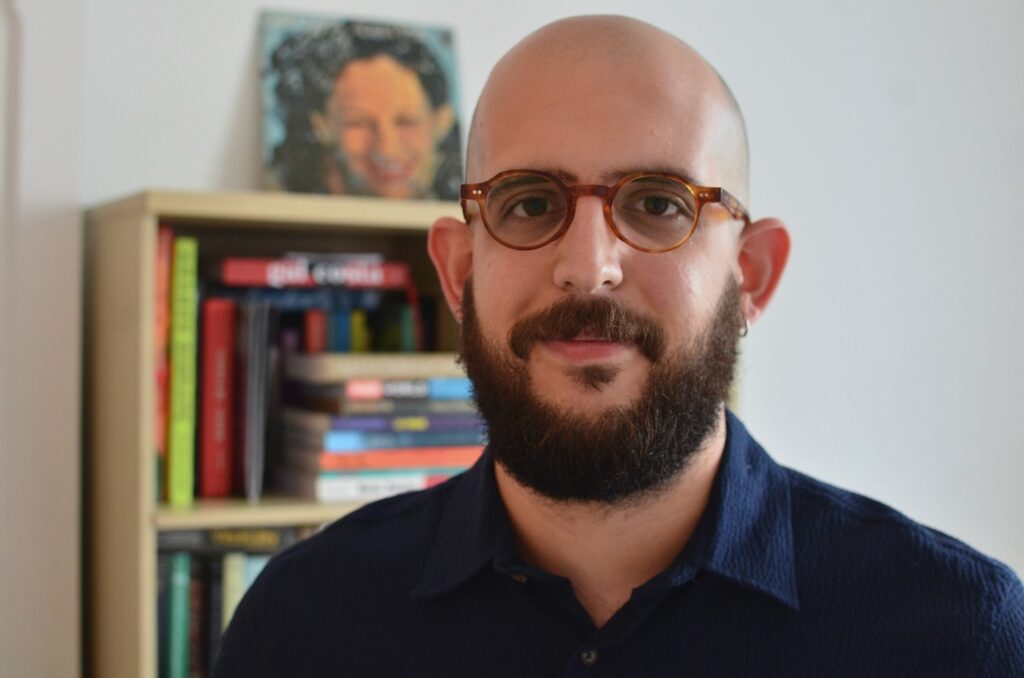
Throughout its history of colonial occupation, Guyana has experienced consecutive and intertwined regimes of extractive exploitation: monoculture plantations on the country’s coast and mining in its Amazonian interior. Guyana’s coast sits below sea level and was reclaimed from the ocean by a system of polders. This geographic environment – a landscape structurally produced for the establishment of plantations – is currently inhabited by two large ethnic groups, Afroguyanese and Indoguyanese. At present, the Guyanese coast has seen the arrival of multinational oil and gas companies linked to the newest extractive enterprise in the region: offshore oil production. This research asks: how does the infrastructure created for the oil industry relate to that created for the plantation? I intend to monitor the establishment and operation of three projects related to oil and gas exploration and observe how these impact the communities where they are installed. During my fieldwork, I seek to understand how the local population mobilizes notions of race and ethnicity and how boundaries between private companies and the state are made and unmade.
Rosânia Oliveira Do Nascimento
While document is not granted: the Maroon struggle against the ineffectiveness of demarcating traditional territory in Brazil
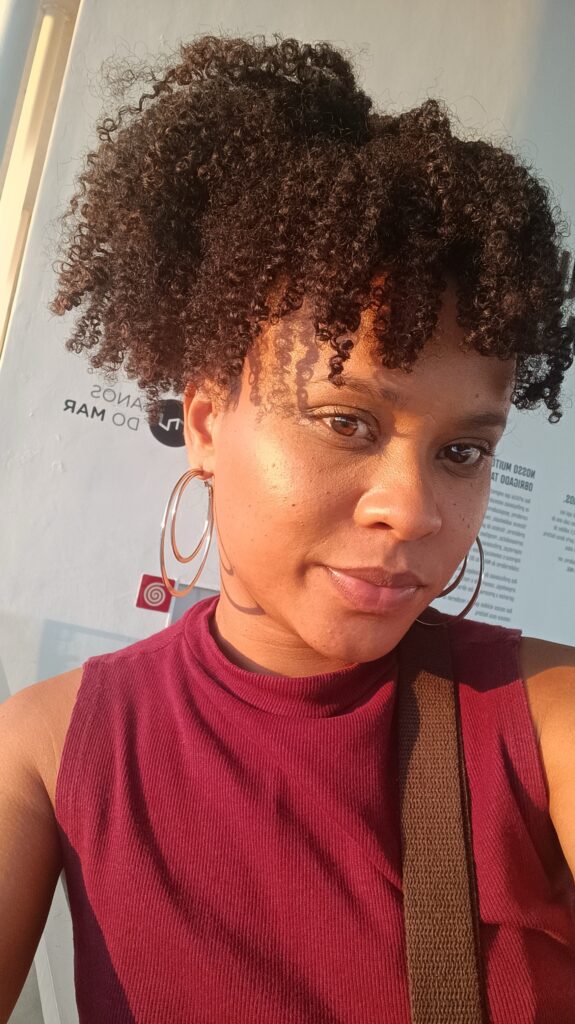
This research project is an ethnography of the struggle of Maroon communities in the Baixo Sul and Recôncavo regions of Bahia, Brazil to guarantee the demarcation of their traditional territory by a federal agency, the Instituto de Colonização e Reforma Agrarian (Incra). Maroon communities became right-bearing subjects after the enactment of Article 68 of the Act of Transitional Constitutional Dispositions (ADCT) of the Federal Constitution of 1988. In the years that followed, the Brazilian Anthropological Association played a fundamental role in securing and guaranteeing fundamental rights. However, administrative procedures relating to the identification, recognition, delimitation, and demarcation of traditional territories, all of which are under the jurisdiction of Incra and, in some states, land institutes, remain paralyzed or inconclusive. This research pursues the following questions: Why does violence in Maroon communities increase with administrative delays in the constitutional recognition of title to these territories? How do Maroon communities navigate the struggle for the demarcation of their territories while contending with the bureaucratization of their rights? How can we identify such events of struggle within the framework of state formation processes, in view of the triangulation among communities, public universities, and state and federal entities given recent political conjunctures in Brazil?
Victor Abreu Amante
Multi-species conservation: an ethnography of endangered neotropical primates
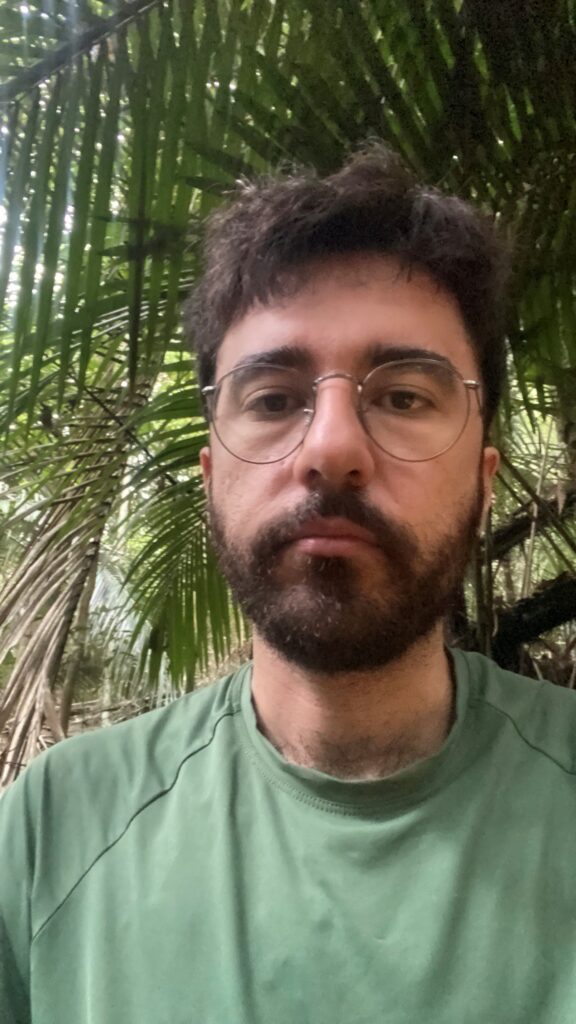
This research project elaborates an anthropological account of conservation practices affecting endangered neotropical primates in Brazil. Given biodiversity loss and the anthropogenic mass extinction of non-human beings, it is more necessary than ever not only to apprehend the mechanisms through which numerous species come to an end, but also to understand the webs of mutual implication in which we humans and non-humans find ourselves. By conducting multi-sited fieldwork at primate conservation centers in Brazil, I hope to shed light on the human-animal relations being established today in the context of species preservation. To this end, it is essential to observe so-called ex situ conservation, that is, conservation in captivity, and in situ conservation, which focuses on wild animals. Both presuppose some degree of handling and, thus, direct and indirect contact between non-human primates and vets, scientists in general, biologists, and attendants, since conservation practices draw on different sciences (zoology, pathology, botany, genetics, forest engineering etc.) and require daily care of the monkeys. In this sense, conservation centers are privileged places to observe and think about fundamental multispecies relations in the contemporary world.